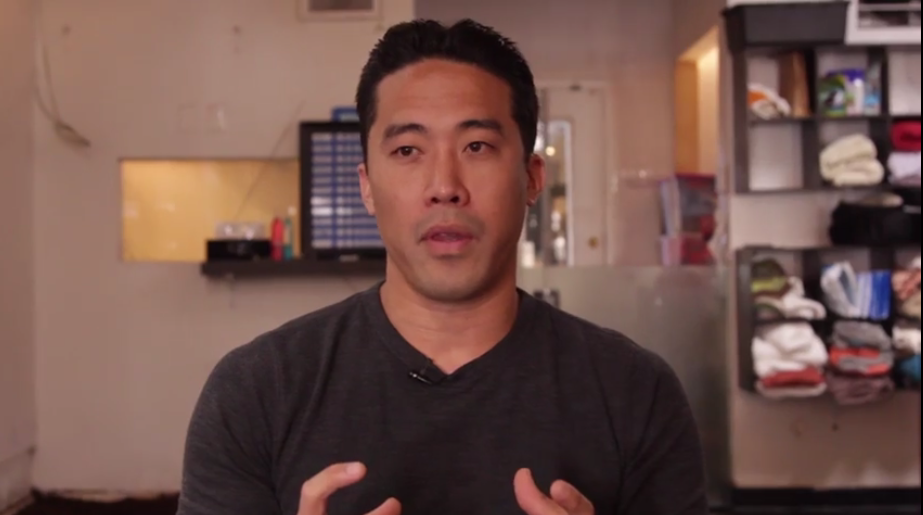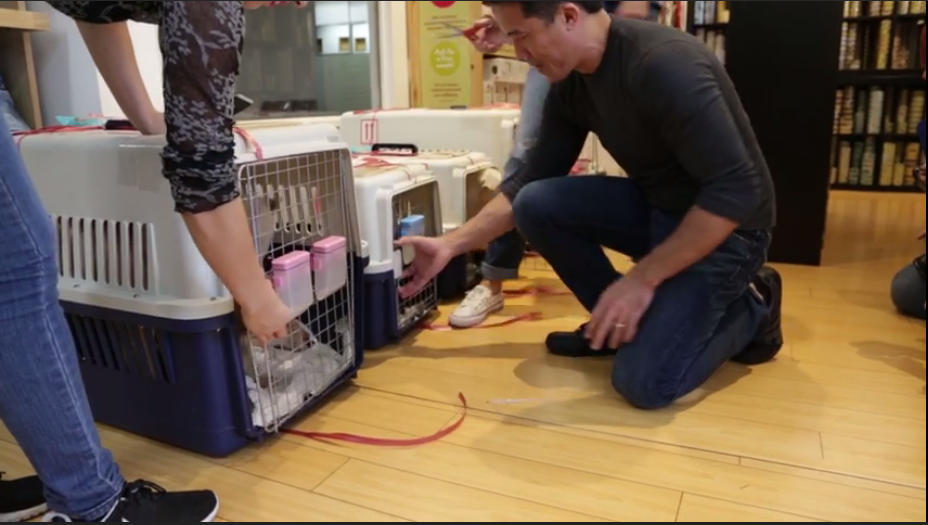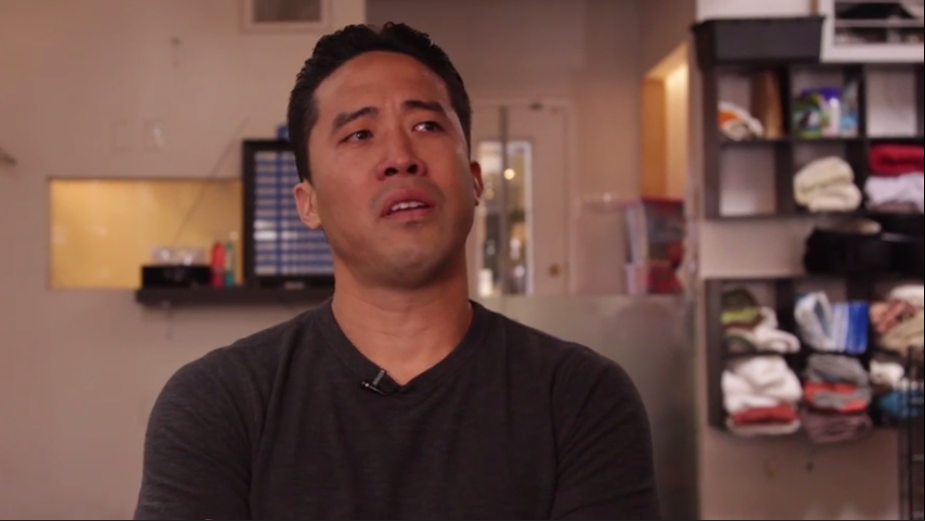This is Marc Ching, a small business owner and dog lover in Los Angeles.
View this video on YouTube
Ching owns two businesses. The first, The PetStaurant, provides healthy food and nutrition for pets. The second, the Animal Hope and Wellness Foundation, focuses on rescuing abused or neglected dogs in the L.A. area.
The foundation not only rescues the pups, but rehabilitates them and helps them find forever homes.
"What makes us different from other rescues is that the animals we take in are not shelter animals or stray," the foundation says on its website. "They are animals we saved from severe abuse cases. They've been beaten and tortured for years and have been waiting for the day that someone would come to save them."
However, Ching's rescue work isn't just confined to his home city. He also is passionate about rescuing dogs from the severe torture and slaughter that occurs in the Asian dog meat industry.
Many Asian countries participate in the dog meat industry, including China, Vietnam, Cambodia, Laos, South Korea, and Indonesia, Humane Society International spokeswoman Kelly O’Meara told BuzzFeed News.
"It is prevalent throughout these countries, and numbers consumed are directly related to human population size," she said. "So China would have the highest rate of consumption."
The Humane Society estimates that 30 million dogs are killed across Asia every year as part of the industry, with an estimated 10 million killed in China alone.
What makes the industry particularly brutal is the myth that tortured or scared dogs taste better, so many slaughterhouses torture the animals before killing them.
"Many believe it and do participate in this horrific practice of torturing dogs before killing them," O'Meara said. "We have seen much footage to show this still exists in many countries as methods of slaughter."
Ching has taken six trips to different countries in Asia in order to rescue dogs from these harrowing circumstances.
He told BuzzFeed Video he has traveled to China, Vietnam, South Korea, Indonesia, Cambodia, and South Korea so far. He has rescued more than 300 dogs.
He gets into the slaughterhouse by posing undercover as an American businessman looking for dogs to buy to import dog meat in the U.S, he told BuzzFeed Video.

By posing as a potential buyer, Ching gets to see the inner workings of the slaughterhouses and learn about what exactly is being done to the dogs.
He then takes photos and videos of the torture, which he shares with the public back home to raise awareness.
"I have videos of hangings, burning them alive, boiling alive, cutting their feet off while they're still alive," he said.
Ching says he then uses his cover to convince the slaughterhouses to give him the dogs for free, under the presumption he wants to try the meat for himself. He then instead brings the dogs back to the U.S.

The trips can get dangerous, Ching said, and he is sometimes risking his own safety to try and save the dogs.
He said he faced more dangerous situations on his last trip to Cambodia, because he said he especially struggled with watching the torture methods.
In one instance, Ching said he was watching a man dismember a dog. He said he was overcome with emotion and kicked the man in his face. He was then beaten up by some men, and was hospitalized.
Growing emotional, Ching said that even though the trips are difficult for him to process sometimes, he feels like he has to keep going.

"You know I'm just losing it out there," he said. "But I have to go because a part of me feels like if I don't go nobody else will.
Ching said he is hoping by raising awareness of the brutal torture methods, he can get the attention of the country's governments and put an end to the practice.
O'Meara said that although the Humane Society does rescue as part of its campaign to stop the dog meat industry, the most important thing people can do is try and change the culture in the countries.
"In each of the countries where dog meat is consumed," she said, "the change in behavior and attitude toward the trade needs to happen from within the country (and among the people that live there).
CORRECTION
A previous version of this post misstated Ching's last name.


